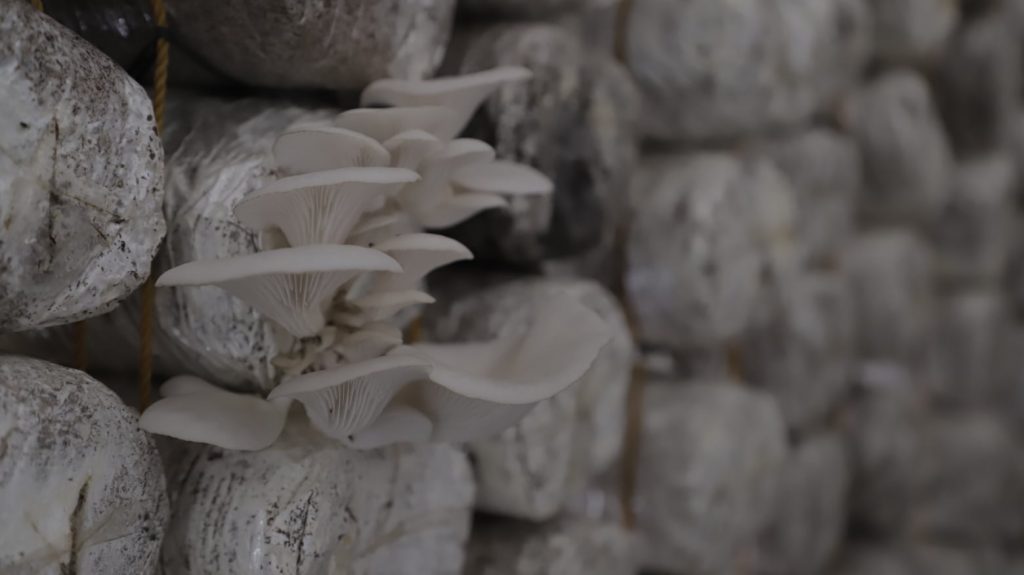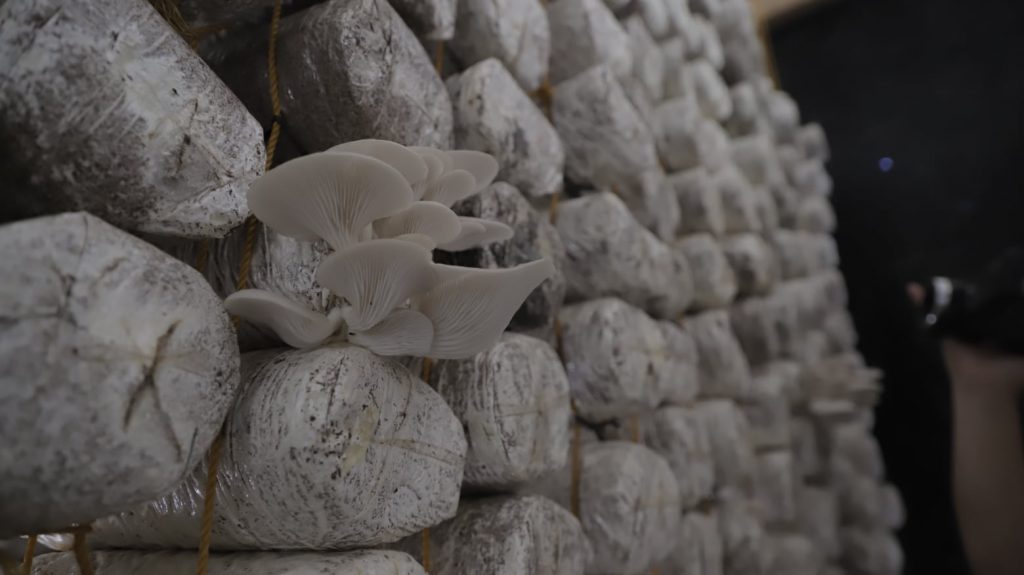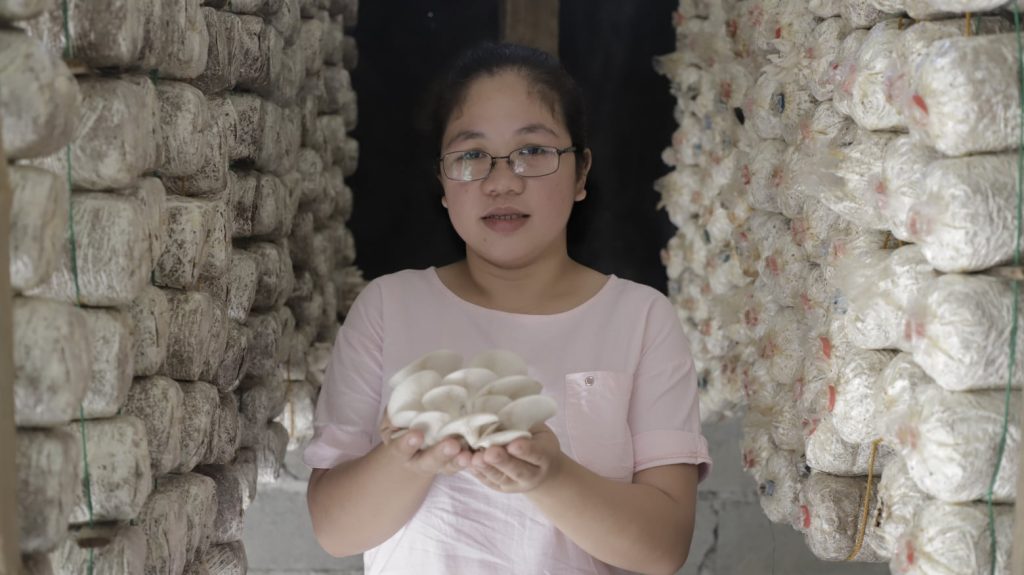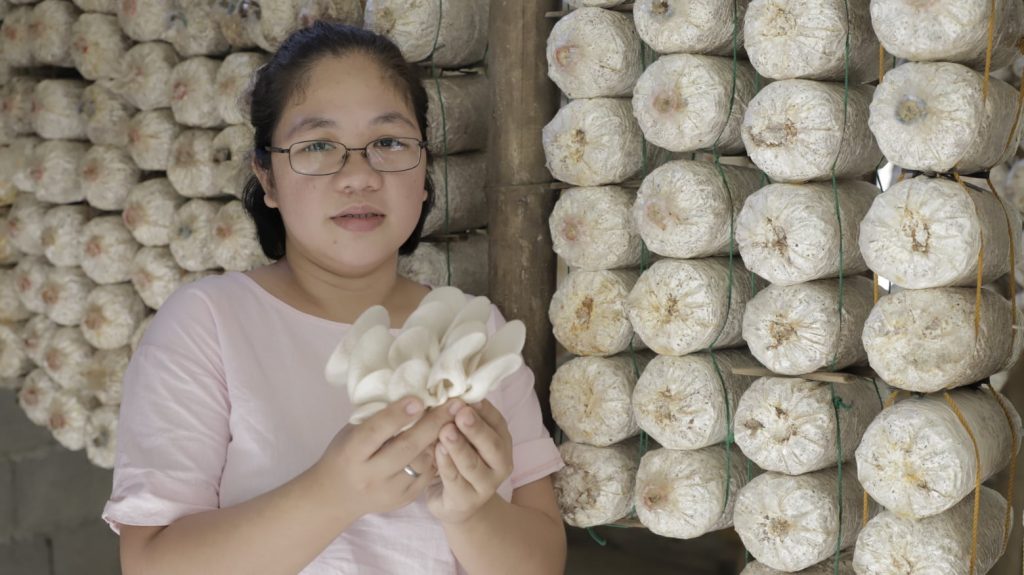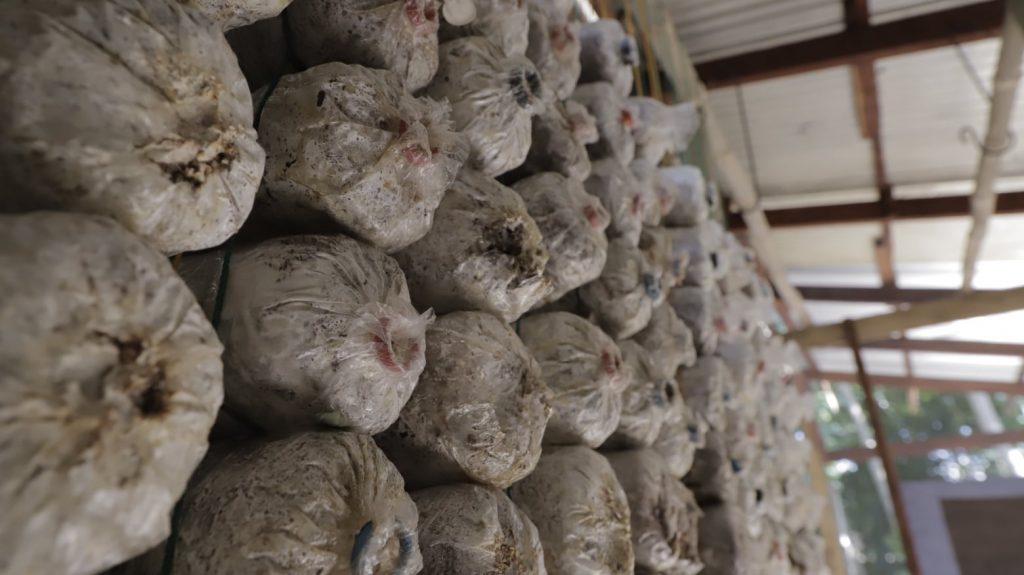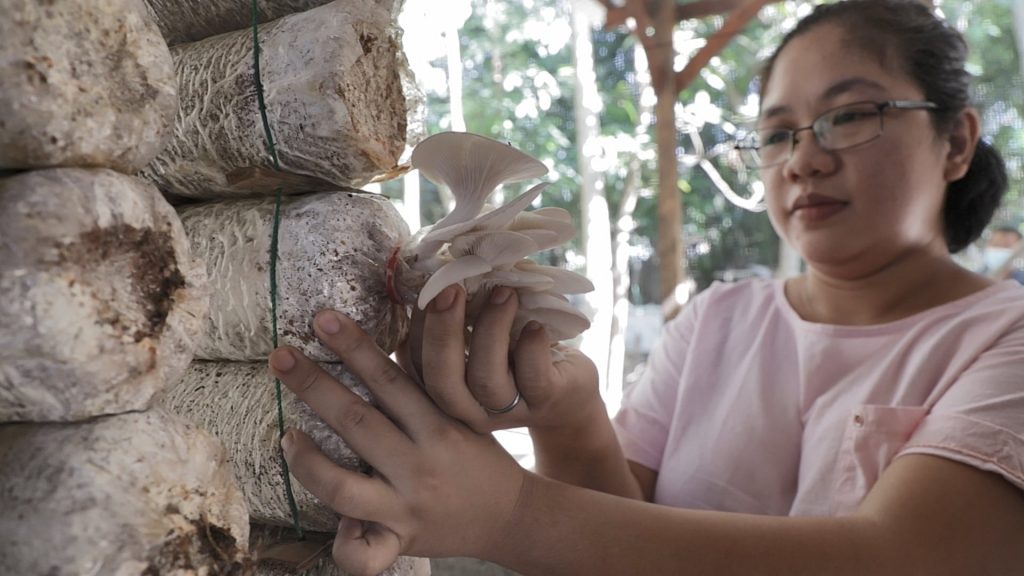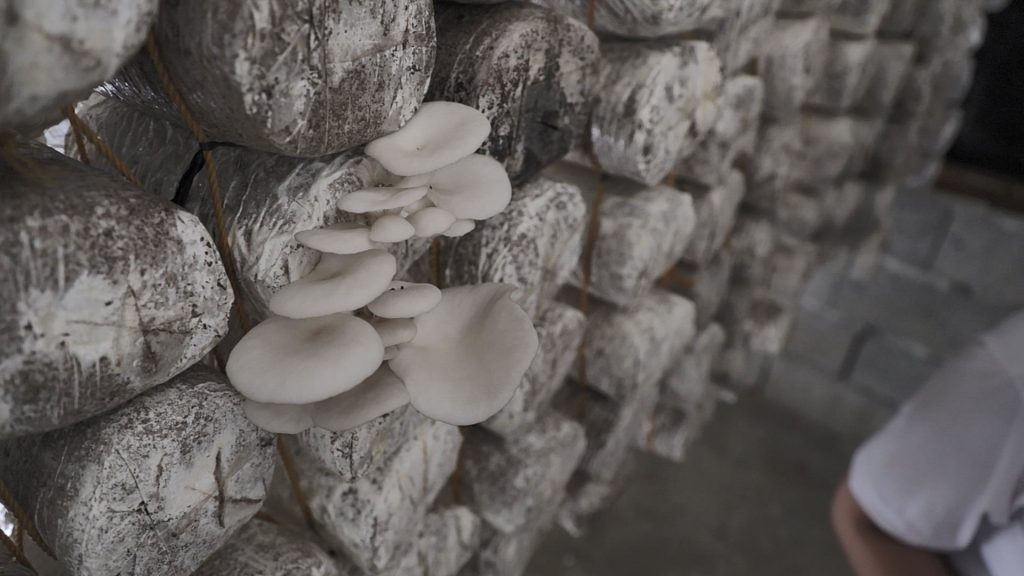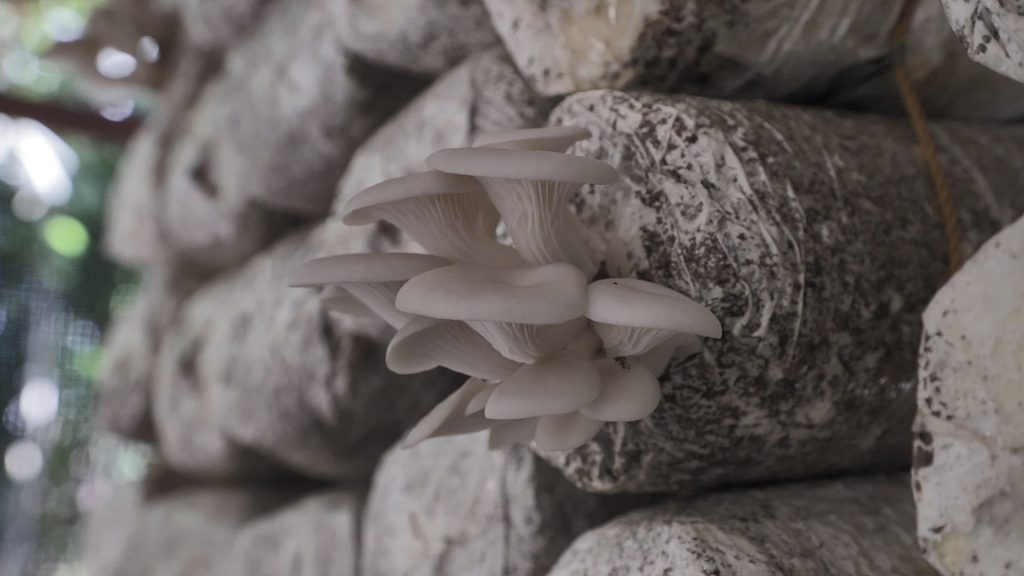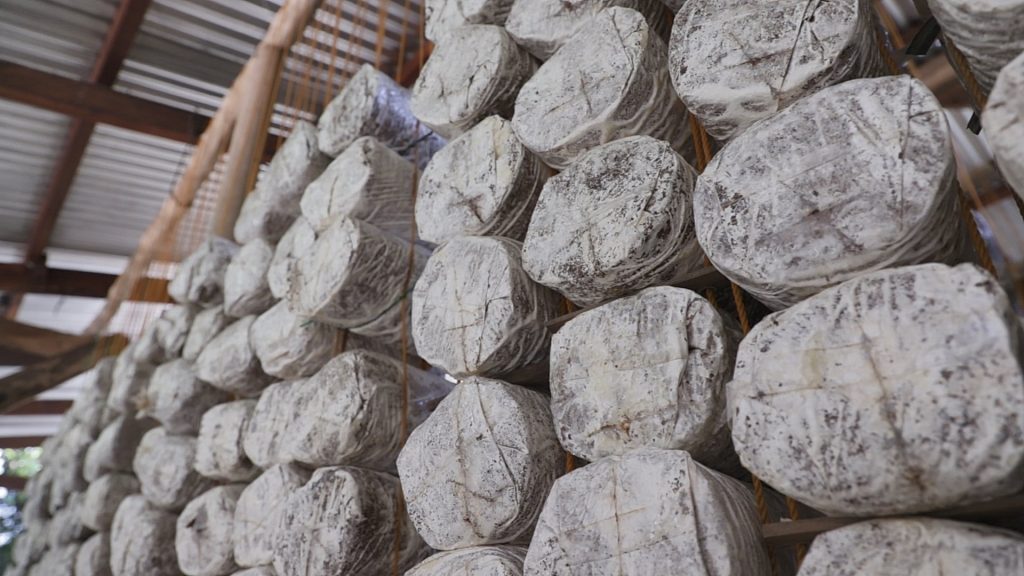Kabataang Agribiz Challenge creates great impact
For partners, Veberly Obillo and Frederick Uyaan, the Kabataang Agribiz Challenge of the Department of Agriculture have created a great impact on their lives as partners, community organizers, farmers, an entrepreneur, and young leaders.
Veberly and Frederick are the owner-managers of La Sierra Mushroom farm located in Brgy. Tallipugo, Balaoan, La Union. They are among the regional winners and one of the 15 national finalists of the DA’s Kabataang Agribiz Challenge conducted by the Department of Agriculture.
Launched last April 2021, this program aims to develop and inspire young adults to venture in the farming business while providing more opportunities to earn and improve leadership skills and competence in running farm-based enterprises.
Looking back to where it all began, Veberly shared in an interview how she and partner Frederick came across the program.
“Nakilala namin ang Kabataang agribiz sa facebook page ng DA-Ilocos. Sa totoo lang po noong una, parang hindi kami masyado nagkainteres not until dumating ang pandemic,” Veberly said.
Prior to the pandemic, the couple had this simple experiment of mushroom production in their backyard. Seeing the potential of the venture as a good source of income, they decided to continue their mushroom production. However, the lack of capital has somehow constrained them to pursue their mushroom business.
Luckily, the Kabataang Agribiz Challenge is very timely as it opened doors of opportunities for the couple. Hence, they took time to learn and understand how the program works especially in the preparation of the Business Model Concept that they are required to submit.
Their patience, determination, and will to succeed really paid off when they were adjudged as the Provincial Winner from among the five competitors in La Union.
“Sa kabutihang palad po, nanalo kami sa provincial level at sa ‘di naming inaasahan, nakuha din po namin ang regional level at ngayon, makikilaban din po pala kami sa national level,” Veberly said.
Having prepared academically, where both graduated Bachelor of Science in Agriculture, with Veberly having a major in Crop Science and Frederick in Animal Science, the couple’s training ground in mushroom production is extensive since Frederick has also gone to Israel as an intern where he learned more production technologies in mushroom.
As a start-up in their business, they raised around 500 growing bags using some of the locally found raw materials. Using the rice bran, “kusot”, rice hay, and banana leaves, as well as natural liquid fertilizer, spawn are being sourced out from a private supplier.
Growing mushroom is not that easy. From the time of gathering the needed materials, stocking them for one month, soaking and steaming for 6-8 hours, and then incubating for another one month, it took them three months of preparation before their mushrooms can be harvested.
To lower down their production cost, the couple uses natural liquid fertilizer through the use of various kinds of leaves soaked in water.
Sourcing out of raw materials for the couple has never been a problem. Rice husk, kusot or sawdust are abundant in the area and have been frequently ignored by the locals.Pest management is also important in mushroom production. During composting, Veberly advises putting this liquid natural fertilizer during the composting period prior to hanging the growing bags so that when it is ready to sprout, the products will be protected.
Aside from their fresh production of mushroom, the couple also engages in fruiting bags production which provides them ready cash after being sold.
However, Veberly finds the fresh mushroom product as more profitable than in selling fruiting bags.
“Kapag naibenta kasi as fruiting bags, cash na po siya kaagad, hindi na po maghihirap. Pero kapag magpatubo ng fresh na mushroom, mas malaki ang kitaan,” Veberly added.
Based on her computation, there is around 20-30 percent gain for every growing fruiting bag produced. For every kilo of the fruiting bag, it produces around 200-300 grams of fresh mushroom. This translates to a margin of 50-60 pesos per fruiting bag when sold as fresh as compared to the P25 per fruiting bag sold alone.
Currently, the couple has a total of 1,500 fruiting bags maintained and hung in their growing house. From these numbers, they are harvesting a maximum of 5-10 kilos every day sold at P200 a kilo in the market and walk-in clients.
With the increasing demand for mushrooms in Ilocos, both as a fresh and fruiting bag, the couple plans to upgrade the tools and equipment needed in their mushroom production. They plan to buy the octopus type of steamer with a capacity of 1000 fruiting bags, way bigger than the usual steamer that they are using now which has only 200 capacities, using their prize as the winner in the regional Kabataang Agribiz Challenge.
They also plan to buy a charcoal evaporative wall as they saw the necessity in their mushroom production business. The construction of this wall shall make their growing bags more conducive for mushroom growing. Using charcoal according to Veberly shall enhance the relative humidity of the place while lowering the temperature of the growing house.
At times when selling their products slacken or when there is an oversupply of produce, the couple likewise do value-adding activities where they make mushroom chicharron, dinakdakan, tempura, and other delightful recipes.
With the conduct of ASPIRE, an annual trade and exposition activity of the DA through its Agribusiness Marketing Assistance Division (AMAD) of Region I, La Sierra’s mushroom products opened more opportunities to engage in wider market outlets as orders from various groups were negotiated during the event.
Giving back the glory that they are reaping now, they unselfishly share their knowledge and skills in mushroom production as they were invited as resource speakers in various training and seminars conducted by the local government units.
Engaging the youth and those others interested to venture into mushroom production, the couple is planning to have a grow now, pay later scheme project, where they will be giving mushroom fruiting bags to interested groups or individuals for livelihood. The beneficiaries shall only pay back the couple at the time when they were able to earn something from this livelihood.
True enough, the Kabataang Agribiz Challenge program has been advantageous to the couple. It did not only provide them a sustainable income and better opportunities but it gives them the sense of pride and hope that the farming business when taken seriously will provide a lasting and meaningful living.
In fact, Frederick, who is currently working at the Department of Science and Technology is now planning to resign so that he can devote his full time managing the La Sierra Mushroom Farm with his partner in success, Veberly..###
